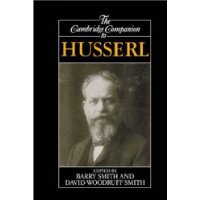
基本信息出版社:Cambridge University Press
页码:532 页
出版日期:1995年05月
ISBN:0521436168
条形码:9780521436168
装帧:平装
外文书名:剑桥哲学指南: 胡塞尔
内容简介 在线阅读本书
The essays in this volume explore the full range of Husserl’s work and reveal just how systematic his philosophy is. There are treatments of his most important contributions to phenomenology, intentionality and the philosophy of mind, epistemology, the philosophy of language, ontology, and mathematics.
编辑推荐 Review
"The essays do a good job at demonstrating the continued significance and importance of Husserl's thought, and though they might not be accessible to some who are not already familiar with Husserl, they are consistently of high quality." Choice "This weighty and distinguished collection explores the whole range of Husserl's writings, his posthumous manuscripts as well as his published works." International Philosophical Quarterly "Proponents of the untenability of the gap between Continental and analytic philosophy will approve of this excellent collection. The editors have collected ten articles by authors who are both excellent philosophers and eminent Husserl scholars...These essays are nearly uniform in their clarity, logical rigor, thorough scholarship, and historical awareness...The Husserl of these essays is a rigorous and original thinker whose thought casts a critical light on a wide range of contemporary issues...The editor's readable and insightful introduction makes it an excellent tool for introducing Husserl's philosophy. Helpful critical bibliographies accompany almost all of the essays." Ethics " Without a doubt, the editors have collected an impressive array of substantive essays dealing with many elements of Husserl's thought. Moreover, while avoiding any oversimplification of both the complexity and the development of Husserl's though, the texts gathered together here do yield a certain unified and coherent picture of Husserl as a 'philosopher in his own right'(2). Indeed, Husserl appears as a 'seminal figure in the evolution from traditional philosophy to the characteristic philosophical concerns of the late twentieth century..." R. Philip Buckley. Philosophy in Review
Review
"The essays do a good job at demonstrating the continued significance and importance of Husserl's thought, and though they might not be accessible to some who are not already familiar with Husserl, they are consistently of high quality." Choice
"This weighty and distinguished collection explores the whole range of Husserl's writings, his posthumous manuscripts as well as his published works." International Philosophical Quarterly
"Proponents of the untenability of the gap between Continental and analytic philosophy will approve of this excellent collection. The editors have collected ten articles by authors who are both excellent philosophers and eminent Husserl scholars....These essays are nearly uniform in their clarity, logical rigor, thorough scholarship, and historical awareness....The Husserl of these essays is a rigorous and original thinker whose thought casts a critical light on a wide range of contemporary issues....The editor's readable and insightful introduction makes it an excellent tool for introducing Husserl's philosophy. Helpful critical bibliographies accompany almost all of the essays." Ethics
" Without a doubt, the editors have collected an impressive array of substantive essays dealing with many elements of Husserl's thought. Moreover, while avoiding any oversimplification of both the complexity and the development of Husserl's though, the texts gathered together here do yield a certain unified and coherent picture of Husserl as a 'philosopher in his own right'(2). Indeed, Husserl appears as a 'seminal figure in the evolution from traditional philosophy to the characteristic philosophical concerns of the late twentieth century..." R. Philip Buckley. Philosophy in Review
Product Description
The essays in this volume explore the full range of Husserl’s work and reveal just how systematic his philosophy is. There are treatments of his most important contributions to phenomenology, intentionality and the philosophy of mind, epistemology, the philosophy of language, ontology, and mathematics. An underlying theme of the volume is a resistance to the idea, current in much intellectual history, of a radical break between ‘modern’ and ‘postmodern’ philosophy, with Husserl as the last of the great Cartesians. Husserl is seen in this volume as a philosopher constantly revising his system in order to be able to integrate philosophy with ideas emanating from science and culture. The so-called rift between analytic and ‘continental’ philosophy emerges as an artificial construct.